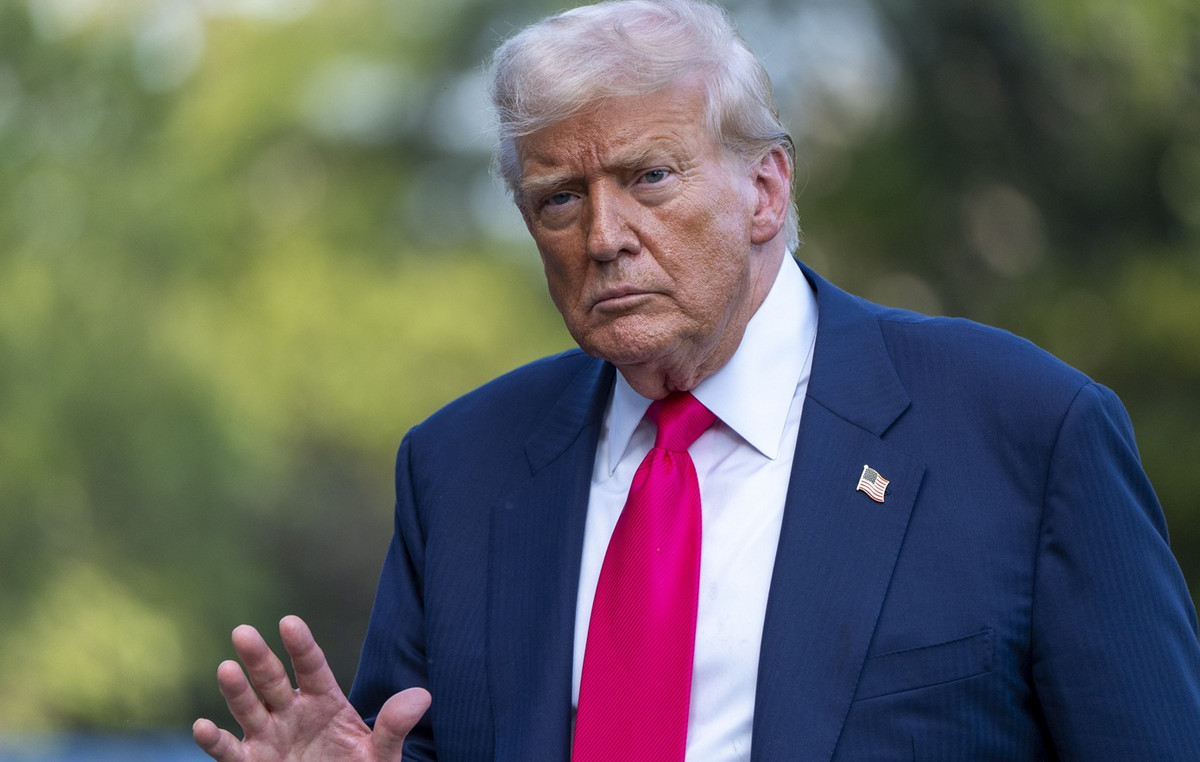The Brazilian government is participating this week in the ninth edition of the Summit of the Americas, organized by the United States in the city of Los Angeles. It is the second time that the United States has hosted the meeting since 1994, when the first edition was held.
This Thursday (9), President Jair Bolsonaro (PL) participates in a bilateral meeting with US President Joe Biden.
US national security adviser Jake Sullivan said the climate would be an “important topic of discussion” at the meeting and that “open, transparent and democratic elections” would also be on the agenda.
THE CNN asked the pre-candidates for the Presidency of the Republic what they think about Brazil’s relationship with the United States. Check out the answers below:
Luiz Inácio Lula da Silva (PT):
The pre-candidate was approached and said he will not comment.
Jair Bolsonaro (PL):
The president told the CNN that he wants a rapprochement with the United States and that he intends to address energy, among other topics, at the meeting. “I expect from the meeting a rapprochement between the United States and Brazil. That we can get closer. We never had a problem with the United States. Brazil is open to talk and have a relationship with any country,” she declared.
“We are going to talk about various topics, including renewable sources, transition energy, green hydrogen. But I will also talk privately with him [Joe Biden]”.
Ciro Gomes (PDT):
The pre-candidate has not responded at the time of publication.
André Janones (Avant):
The pre-candidate has not responded at the time of publication.
Simone Tebet (MDB):
The pre-candidate has not responded at the time of publication.
Pablo Marcal (Pros):
The relationship between Brazil and the United States is very old. The first agreement celebrated dates back to 1824. In this agreement the United States recognized Brazil as an independent and sovereign nation. There are almost 200 years of bilateral relationship that has withstood different political conjunctures over these two centuries due to the importance of these two markets. We are talking about the largest economy in the world today and Brazil, which, as I have said, will be in the position of the largest economy in the world in 2032.
The US is interested in this relationship that resists the alternation of power and ideological bias because it sees us as the power we really are. The problem is that the Brazilian mentality is enslaved by those who are interested in this polarization that we see every day. That’s why the candidates who are ahead in the polls are promising to make Brazil return to the ranking of the sixth largest economy instead of putting it in the place of the power that it is. The truth is that the two of them, in power for five terms, if we add to that of the current government, can only promise more of the same because they are the causes of the deterioration of our economy.
What we are going to do is strengthen our industry, transform the mindset of Brazilians and change the key to production. This has a strong impact on exports because a good part of the raw material still leaves Brazil in the form of barter, returning to imports of finished products with high added value. We are going to change that, and Brazil is going to negotiate with all these players as the great power that it is. “God bless America because Brazil has been blessed since before the foundation of the world”, this is our vision.
Felipe d’Avila (New):
The PT governments and the Bolsonaro government share the same misunderstanding about the importance of foreign policy in the globalized world. In particular, they were equally negligent in their relationship with the US. In different ways, both led Brazil to reject international treaties and trade agreements that could contribute to the production of goods with greater added value and that could expand cooperation in strategic topics for our country, such as the environment and science and technology.
The relationship between the two countries has a long tradition of dialogue and mutual respect. We need to rescue the state character of our foreign policy and curb the ideological agendas cultivated by left and right populists.
The partnership with the US is strategic and must always be based on the defense of Brazilian national interests. We need to recover a positive agenda that leads to greater economic openness in Brazil and the promotion of common interests such as the fight against transnational organized crime in the Region of the Americas, environmental preservation and the creation of new business opportunities in the green economy.
At the regional level, Brazil and the USA can and must rescue the agenda that they have developed together since the redemocratization of Brazil, promoting the defense of human rights and democracy as fundamental values that guide the integration between the countries of the Americas.
Jose Maria Eymael (DC):
I consider a close and respectful relationship with the United States to be fundamental.
In this relationship, Brazil must be aware of its strength due to its territorial extension, the riches of its subsoil, its history and the creative and entrepreneurial capacity of its people.
Effectively, this awareness that Brazil, together with the United States and Canada, is one of the largest countries in America in terms of territory and population must be, must be, a strong motivation for a productive and permanent partnership between Brazil and the United States.
Leonardo Pericles (UP):
The pre-candidate has not responded at the time of publication.
Luciano Bivar (Union Brazil):
Unfortunately, the relationship between Brazil and the United States is not good because of the attitude of our government. I believe that Brazil was invited only because of its strategic position in Latin America at a time of risk of global war. In addition, the United States has expressed concern about threats to democratic institutions in our country.
Sofia Manzano (PCB):
Throughout the 20th century, Brazil’s political and economic relationship with the US was marked by a subservience that was corrected during the period of the Military Dictatorship and in the 1990s when the US tried to establish the Free Trade Area of the Americas (FTAA). In recent years, the US economy has lost ground in trade relations not only in Brazil, but also in other Latin American countries, and now the Biden administration has been trying to regain this lost ground and greater influence, especially in South America, in view of the growth of presence of Governments that proposes to dialogue even more with China and Russia.
The Bolsonaro administration was an outspoken supporter of Donald Trump and was the last to recognize Biden’s electoral victory, in addition to having initially positioned itself sympathetic to the Russian government shortly before the War in Ukraine. In other words, this meeting that will take place between Biden and Bolsonaro should seek a rapprochement between the two governments in order to allow for a lesser Chinese and even Russian insertion in the region, but the Bolsonaro government will certainly demand commercial advantages for this American intention. In general, even if Bolsonaro does not identify with the current US government, the fact is that the Armed Forces still follow the School of the Americas booklet and a large part of the Bolsonarist base still thinks in terms of the “Cold War”, ideologically justifying it. any and all political subservience in practice.
Vera Lucia (PSTU):
Today Brazil has a relationship of submission to the United States and the rich countries that dominate the world capitalist system. This relationship is imposing an increasing decadence, a recolonization of the country. That has to change.
By determination of imperialist economic interests, Brazil was demoted to a step in the world division of labor. We are losing industrial weight, with an increasingly intense relative deindustrialization. Industrial production in the country fell 43.8% in 40 years, while it grew 6.6% worldwide. The country is increasingly losing industrial sectors and shifting food and mineral production to the world market.
The Brazilian bourgeoisie is completely associated and submissive to the big multinationals. The large foreign financial funds have assets in Brazil of 6 trillion reais, 80% of the country’s GDP. They control a large part of large industries, banks, agribusiness and commerce.
Almost half of the Union’s budget is channeled out of the country through the “payment” of the Public Debt (domestic and external), a control and submission mechanism used by the United States and rich countries over poorer countries.
Our relationship with the United States will not be one of submission. We will suspend the payment of public debt, nationalize the 100 largest companies and the largest banks, carry out agrarian reform and resume industrialization in Brazil. In other words, we are going to defend national sovereignty and break with historical submission to imperialism.
Photos – The pre-candidates for the presidency
Source: CNN Brasil
I’m Susan Karen, a professional writer and editor at World Stock Market. I specialize in Entertainment news, writing stories that keep readers informed on all the latest developments in the industry. With over five years of experience in creating engaging content and copywriting for various media outlets, I have grown to become an invaluable asset to any team.







